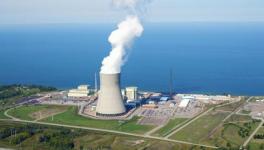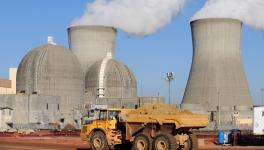Subsidising US Suppliers: The Nuclear Liability Bill
The Congress-led UPA Government has placed the Nuclear Liability Bill as one of 36 legislations it wants the Parliament to pass this session. This is one more chapter in the sorry saga of the India US Nuclear Deal. The key part of the the proposed Bill is to absolve all US equipment suppliers of any liability. Without this, the US equipment suppliers will not supply any equipment and the US Government has held up all action on the India US Nuclear Deal. Though the French and Russian equipment suppliers have not asked for any such liability legislation, the Manmohan Singh Government has buckled under US pressure and is now willing to provide the US suppliers with this comfort.
The PM in his various speeches to the Parliament had stated that the India US Nuclear Deal ensures lifting of ban on all dual use technology and has an up-front consent for reprocessing of spent fuel. The truth, as is apparent now, is quite different. In an interview to Newsweek, on November 16, 2009, Prime Minister Manmohan Singh now says, “My sincere hope is that we can persuade the US administration to be more liberal when it comes to transfer of dual-use technologies to us. Now that we are strategic partners these restrictions make no sense...So, that is my number one concern.”
Fuel reprocessing is another critical issue, as otherwise, India could land in the old Tarapur mess of running from pillar to post for fuel for its reactors, while storing the spent fuel in costly holding ponds for decades. Dr. Singh told Parliament in 2007 that an "important yardstick has been met by the permanent consent for India to reprocess." The Left had held that the 123 Agreement does not constitute any approval to fuel reprocessing and the US will need to give formal approval for any such measure. The US side has now made clear that they have no intention of giving any permanent right to reprocess. During the PM's visit last year, it was announced that the consent to reprocess is a matter of a few weeks. It has yet to materialise!
It now appears that all this is linked to India passing a nuclear liability Act. For the US side, Condi Rice, Bush's Secretary of State, had made their interests in the Nuclear Deal clear – the US wants to kick-start its moribund nuclear industry by selling nuclear reactors to India. India is on record wanting to buy 10,000 MW of nuclear reactors from the US suppliers. The US nuclear industry wants the billions of dollars in profits from Indian sales, but does not want any risks: good old risk-free capitalism, US style. This is the genesis of the nuclear liability bill – a hefty subsidy from Indian tax payers for the US to be able to market its reactors.
The full details of the Nuclear Liability Regime is not yet available in the public domain. The key elements is limiting all liability to about $450 million dollars, the operators liability to be restricted to only Rs. 500 crore and no legal liability for the supplier. It can be a contractual arrangement between the operator and the supplier, but not in liability law. The difference between the $450 million limit and the Rs. 500 crore limits is the Indian state's liability; through this legislation, India is also proposing to limit its liability as well.
All this is in direct contradiction to the current law of the land. The Supreme Court in its judgement on the Oleum leak case from Sri Ram Food and Fertilisers in 1987 had made clear that the industry operating hazardous plants had absolute liability including that for environmental damage. The current Bill seeks to reverse this. An upper limit of $450 million makes no sense when we know a nuclear accident can cause billions of dollars in damages. Even the Bhopal case showed that $470 million for the gas victims was totally inadequate. By keeping all liability – including that of the Indian state -- capped at $450 million, India will subsidise the nuclear industry at the cost of the Indian people.
The Rs. 500 crore limit for operators is well within their insurance cover. By keeping the operators liability so low, Indian Government is playing with the safety of the nuclear plants.
The Indian Government is also claiming that the $450 million cap comes from the Vienna Convention on Civil Liability for Nuclear Damage. The Vienna Convention defines the minimum amount of limit of the operator’s liability-- it provides a floor and not a ceiling. It also allows countries to operate their own liability regimes. For example, Germany, Japan and Finland all have unlimited liability, the same as current Indian law. The US has a liability cap of $ 10.2 billion through its Price Anderson Act.
Even with this subsidy,the cost of imported reactors from the US is way above that of indigenous reactors – the prices are 3-4 times that of Indian reactors. But that is a different story. The issue today is that even at this high prices, it is the Indian people who will be at risk. What is on offer is a huge implicit subsidy to the US nuclear industry. This is the crux of the Nuclear Liability Bill on the anvil.
Get the latest reports & analysis with people's perspective on Protests, movements & deep analytical videos, discussions of the current affairs in your Telegram app. Subscribe to NewsClick's Telegram channel & get Real-Time updates on stories, as they get published on our website.


















